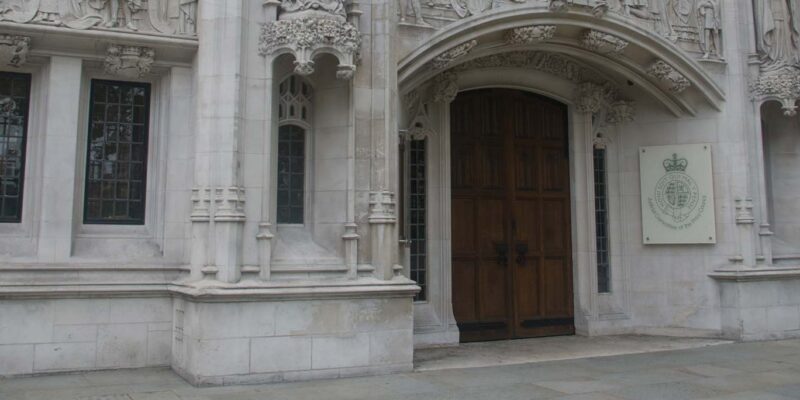Manchester 0161 832 2500 | London City 0204 505 8080 | London Finchley 020 8349 0321
Secure PaymentAs experienced solicitors dealing with Wills, we understand that Will Writing is something that many people tend to put off. Understandably, nobody likes to think about their death, but putting off making a Will can have a detrimental impact on those left behind, and it could mean that you lose the chance to expressly state who should benefit from the estate you leave behind.
In this post, our Will team discusses what happens when a person dies without leaving behind a valid Will.
What happens to an Estate when there is no Will in place?
When a person dies without leaving a valid Will, their estate will be distributed according to a specific set of rules. These rules are known as the Rules of Intestacy. You may have already heard of the term ‘Testator or Testatrix’ being used where Will writing is concerned; if a person dies without making a valid Will, they are referred to as an intestate person.
According to the Rules of Intestacy, only civil and married partners or a number of other close relatives can inherit an estate. In the case of an invalid Will, the expressed wishes of that Will are usually voided, and the Rules of Intestacy will ultimately determine how a person’s estate will be divided.
Civil or Married Partners
If a civil or married partner is in a civil partnership or married at the time of a person’s death, they will inherit under the Rules of Intestacy. As such, if the civil partnership was legally ended or you are divorced, then a person cannot automatically inherit under the Rules of Intestacy.
If there has been an informal separation, then a partner can still inherit an estate under the Rules of Intestacy. Common-law or Cohabiting partners who were neither in a legal civil partnership or married cannot inherit under the Rules of Intestacy.
If you are part of a couple that jointly owns a property, then it will depend on whether you have a tenancy in common or a beneficial joint tenancy as to what happens.
Tenants in common – in this case, the surviving partner will not automatically inherit the share owned by the other partner.
Beneficial joint tenants – in this case, when the first partner passes away, then their share in the property will be automatically inherited by the surviving partner.
If you have a joint building society or bank account and one partner dies, then the other partner will inherit all of the money in the joint account. Any money or property that is inherited by the surviving partner will not count as part of the estate of the individual who has passed when it undergoes valuation for the Rules of Intestacy.
If you live with a partner but are not married or in a legal civil partnership, you will likely want to ensure the right provisions are left for your partner. Our local Will writing solicitors can help you put the right measures in place to ensure their needs are taken care of according to your wishes.
Children
In the event there is no surviving civil or married partner, then the children of the intestate person will usually inherit the entire estate. If there is more than one child, then each child will inherit an equal share of the estate. If there is a surviving partner, the children will only benefit if the intestate’s estate is valued at more than £270,000. In this situation, then the children will inherit one-half of the estate’s value, above the £270,000 threshold.
The most notable consideration here is that under the Rules of Intestacy, the first £270,000 will be awarded to the spouse, and the remaining assets are then equally split between the spouse and the children. In this scenario, you might end up in a situation whereby you have minor children or adult children who are unable to handle a vast sum of money. If this happens, the family inheritance could be squandered. Where substantial sums of money are being passed over to the next generation, inheritance tax is another major consideration.
When you work with an expert Solicitor dealing with Wills, you can implement specific provisions to avoid such issues.
If the parents of a child were not married at the time of death, or they have no registered civil partnership to speak of, then a child can inherit from their parent’s estate if they die without leaving a valid Will. In addition, these children may also inherit from any of their great-grandparents or grandparents’ estates if they die without leaving a valid Will.
If a child is adopted, and this also refers to step-children adopted, they also have the right to inherit an estate under the Rules of Intestacy. If inheritance is left for a child, then they will either receive this when they are 18 years of age or when they form a civil partnership or marry below this age. Up until this point, any inheritance is managed by trustees on their behalf.
Grandchildren or Great Grandchildren
Either a great-grandchild or a grandchild will not inherit from the estate of a person who has died without leaving a valid Will unless:
- The grandparent or parent dies before the intestate person; or
- When the intestate person dies, their parent is alive, but they die before reaching 18 years of age, without having formed a civil partnership or getting married.
In this situation, the great-grandchildren or grandchildren will receive equal inheritance shares of the portion to which their grandparent or parent would have been entitled.
Close Relations
Parents, brothers, nephews, sisters, and nieces of a person who dies without leaving a Will may inherit according to the Rules of Intestacy. However, this depends on a number of very specific circumstances; namely
- If there is either a civil or married partner
- If there are children, great-grandchildren, or grandchildren
- With respect to nieces and nephews, whether the parents who are related to the deceased is also dead
- The estate’s value
If the person who died without leaving a Will has no surviving partner, children, grandchildren, great-grandchildren, sisters, parents, brothers, nieces, or nephews, then other relatives could be entitled to inherit some or all of their estate. There is an order of priority that applies to other relatives:
- Grandparent
- Aunts and Uncles
- A cousin could be entitled to inherit in the event the uncle or aunt who would have inherited died prior to the intestate person
- Half-Aunts and Half-Uncles
- A half-cousin could be entitled to inherit in the event the half-aunt or uncle who would have inherited died prior to the intestate person
As local Will writing solicitors, we are here to help you with Will writing. Our team can provide you with the guidance you need to correctly express your exact wishes and ultimately avoid any confusion or doubt over who you want to leave your estate to.
Who cannot inherit when a person dies without leaving a Will?
Under the Rules of Intestacy, there are some people who cannot claim any rights to a person’s estate if they die without leaving a Will; such as
- Close friends
- Carers
- Unmarried partners
- Relatives through marriage
It is important to note that while these individuals cannot inherit any part of a person’s estate who dies without leaving a Will, there is a possibility that any of these individuals could make an application to the court for financial provisions from the estate.
In the event there are no surviving relations to inherit the estate, it will pass to the Crown. If this happens, it is known as Bona Vacantia and falls under the responsibility of the Treasury Solicitor to deal with any left-behind estate.
While the Rules of Intestacy are designed to ensure a fair distribution of an estate if somebody dies without leaving a valid Will behind, they are not going to provide anywhere near what an individual would have wanted, should they sit with a professional Will solicitor and prepared.
As solicitors dealing with Wills, we can help you make sure you leave a valid Will that provides complete clarity over who should receive what in the event of your death. Our team also specialise in Estate and IHT planning services, and we can help you understand the different options based on present-day inheritance tax guidelines.
Speak with our team today for an initial discussion about one of our Will Solicitors dealing with your Will. We offer expert advice, and great value for money, our Will writing services can be provided remotely for your convenience.


